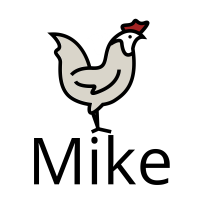For me, it may be that the toilet paper roll needs to have the open end away from the wall. I don’t want to reach under the roll to take a piece! That’s ludicrous!
That or my recent addiction to correcting people when they use “less” when they should use “fewer”


The miss use of the term “billet”. As in “Made from Billet Aluminum to military specs” I have literally sourced metals from all over the world. Ain’t no one ever tried to sell me “billet” anything.
A billet is an old term that was used when iron and steels were smelted and then poured in to either kind of a bread loaf mold or a round shape called a bloom. It would then be reheated at a later time and then formed into the final shape. No one would use “billet” or a “bloom” to make anything from it. It would have been “sponge” like and to soft to be useful for anything.
Fecking sales trying to market to ignorant people with a term that doesn’t mean what anyone thinks it means.
Calling out misinformation meant to prey on customers…you’re not being pedantic. You’re doing us a favor here.
Billet Manufacturing
What is a billet? The term “billet” refers to the form of the metal being used in the manufacturing process rather than the manufacturing process itself. Billets are solid lengths of metal with square or circle cross-sections, such as a steel billet. They can be made of virtually any type of metal or alloy and to virtually any size to suit the part and production specifications.
Billets are produced by continuous casting or hot rolling methods. Once they are in their initial form and size, they are generally shaped into the final part form and size through machining methods (e.g., CNC machining), which means excess material is removed from the workpiece.